The Government of Georgia issued Decree No. 335 (August 7, 2025) to update the rules on how electrical and electronic equipment (EEE) waste is managed in the country. The main change gives the National Environmental Agency new powers to run the electronic registry for producers, collect and verify data on EEE waste, and oversee organizations that handle recycling under the Extended Producer Responsibility (EPR) system.
Key Points of the Amendment:
- Definition Update:
The term “Agency” is added, defined as the National Environmental Agency under the Ministry of Environmental Protection and Agriculture of Georgia - Expanded Powers of the Agency:
The National Environmental Agency is now authorized to: - Create and maintain an electronic registry of producers under the Extended Producer Responsibility (EPR) scheme.
- Develop and manage databases on quantities, types, and characteristics of EEE waste, including hazardous components.
- Verify data accuracy and collect additional information as required by law.
- Authorize, renew, or revoke the accreditation of EPR organizations.
- Monitor compliance with the regulation and cooperate with other state and local authorities during inspections.
- Publish annual reports (by May 31 each year) on EEE waste management performance in Georgia.
- Producer Registration Requirements:
- All EEE producers must register in the EPR electronic registry before placing products on the market.
- The registry will be managed by the Agency, following rules set by the Minister of Environmental Protection and Agriculture.
- The Agency must maintain databases related to EEE waste collection, treatment, and export.
- The Revenue Service’s Customs Department must provide the Agency (twice a year – by February 1 and August 1) with data on imported EEE volumes (by type and weight), subject to producer consent.
- Producers Outside EPR Organizations:
Producers not joining a collective EPR organization must establish an individual EPR scheme and apply for authorization from the Agency. - Obligations of EPR Organizations:
- Must submit semiannual import data and other operational information electronically.
- Provide data on quantities of products placed on the market, collected and recycled waste, and progress toward targets.
- Conduct public awareness and information campaigns on EEE waste management.
- Authorization Procedure for EPR Organizations (Article 10):
- Must obtain authorization from the Agency before starting operations.
- Authorization is valid for six years and may be renewed.
- Must submit an annual action plan and budget (including awareness-raising activities) for approval by November 15 of each year.
- Must provide an annual performance report and an independent audit opinion by April 30 each year.
- The Agency can revoke authorization if:
- Conditions of authorization are not met,
- Required targets are not achieved by the third year,
- False information was submitted, or
- There is repeated non-compliance.
- Effective Date:
The decree took effect on August 1, 2025.





